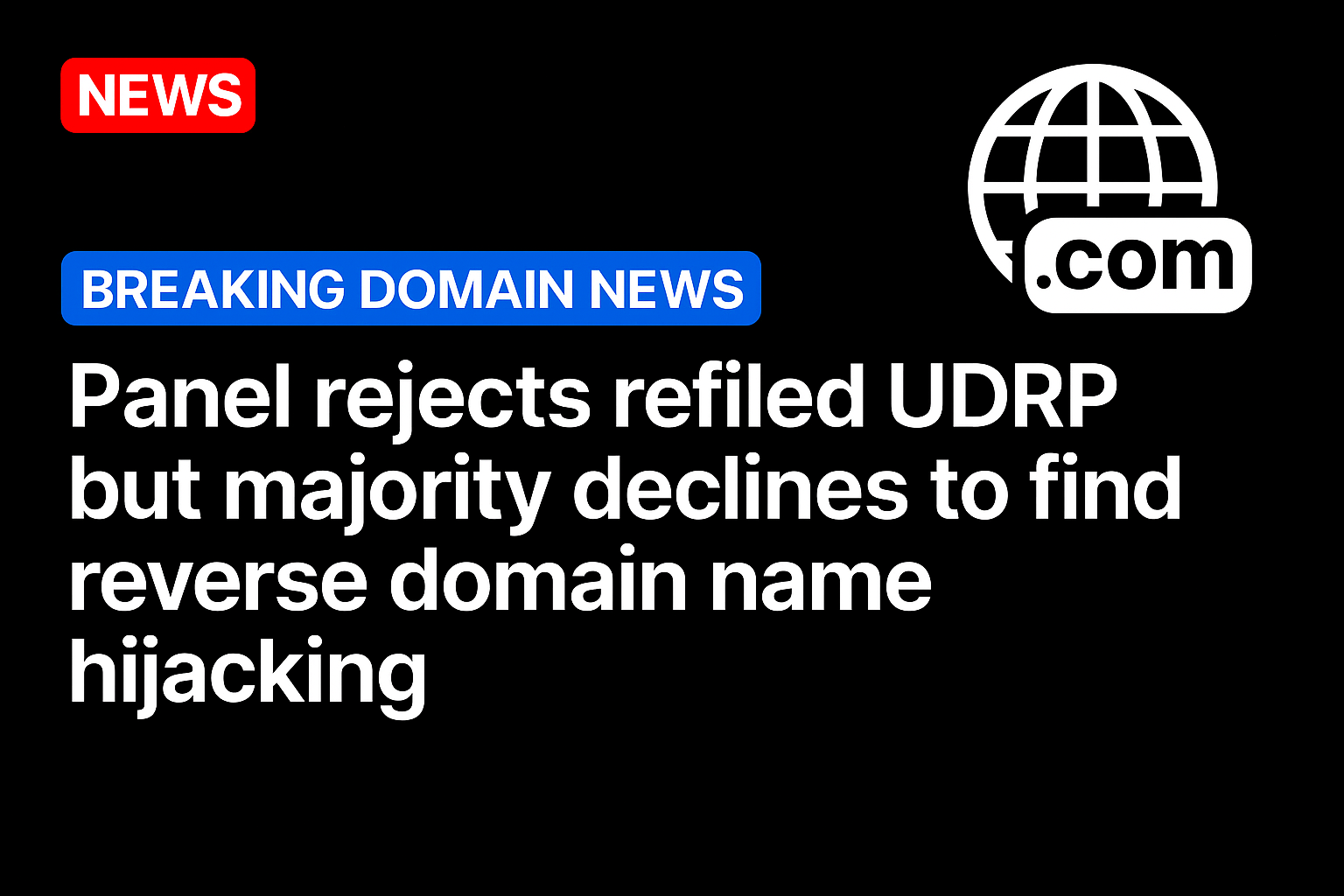
Panel finds Complainant didn’t meet grounds to refile the case.
A three-person UDRP panel has denied a refiled dispute, but the majority of the panel declined to find reverse domain name hijacking.
Tiger Aesthetics Medical, LLC, which uses the domain tiger-aesthetics.com, filed a case against tigeraesthetics.com in February. The panelist in that case denied the complaint, but wrote:
The Panel notes that, as stated in 4.18 of the cited Overview, the instant case could be refiled if Complainant can present new material evidence that was reasonably unavailable to it when the instant case was filed, in particular concerning Respondent’s intent in registering the disputed domain name.
Indeed, the instant Panel explicitly gives Complainant leave to refile on such grounds…
The company took advantage of that invitation to refile, but it did not meet the stated reasons for doing so.
Instead, it used the opportunity to restate its argument that it had common law rights in the domain.
It also pointed out that the domain registrant increased the price from $18,888 to $500,000 after the initial UDRP decision. The Complainant also said the website was updated to feature a logo similar to the Complainant’s logo. (The domain registrant stated, “I briefly published a landing page with AI-generated content and branding, with no intent to infringe or imitate Complainant.)
The three-person panel in the new case found that a refiling was not appropriate:
Even if the previous panel’s decision had not expressed limitations on Complainant’s ability to refile, the Panel here still sees no reason why a refiled complaint would be appropriate. Yes, Respondent appears to have significantly increased the advertised price for the Disputed Domain Name following the decision in the first proceeding, but this is not a “legally relevant development” because, if it is relevant at all, it would be relevant only to use – not registration – of the Disputed Domain Name, and the previous decision clearly denied relief because, inter alia, “Complainant has failed to satisfy its burden of proving bad faith registration of the disputed domain name.”
Accordingly, the Panel finds that this is not an exceptional case in which refiling would be appropriate…
The majority of the panel, including Douglas Isenberg and Francine Siew Ling Tan, declined to find reverse domain name hijacking. They stated:
Here, given the panel’s express note in the first proceeding regarding the Disputed Domain Name that “the instant case could be refiled” under limited circumstances, the Panel finds that, although such circumstances are inapplicable here, Complainant did not act “in bad faith to attempt to deprive” Respondent of the Disputed Domain Name.
Panelist David Sorkin found reverse domain name hijacking:
Complainant failed to prove bad faith registration in the prior proceeding, and has presented no new evidence concerning that issue that was reasonably unavailable when the prior proceeding was brought. The refiled complaint represents a brazen attempt by Complainant and its counsel to relitigate that issue, warranting a finding of reverse domain name hijacking.
David M. Perry of Blank Rome LLP represented Tiger Aesthetics in both cases. The domain registrant was self-represented.
Source: https://domainnamewire.com/




